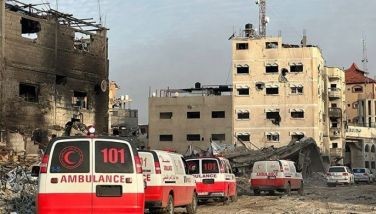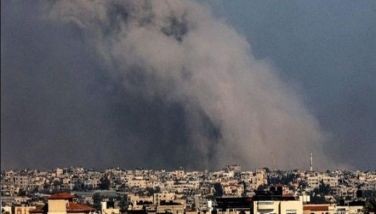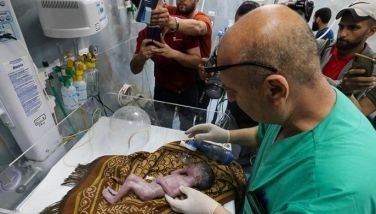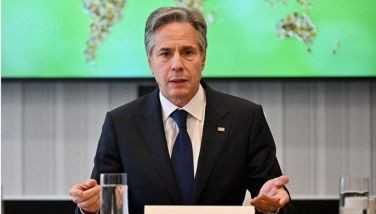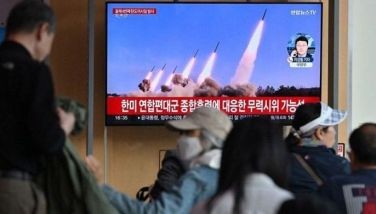News Analysis: Future of Egypt's Brotherhood remains uncertain: experts
CAIRO (Xinhua) - The recent remarks of Egypt's two sole presidential candidates on the Muslim Brotherhood's futurelessness put the controversial Islamist group at stake in terms of its reengagement in the country's political life.
In their recent TV interviews, ex-military chief and presidential candidate Abdel-Fattah al-Sisi made it clear that " there will be nothing called the Muslim Brotherhood in my presidential term." His leftist opponent Hamdeen Sabahy also said "there is no presence for the Muslim Brotherhood or for a political party that belongs to them."
BROTHERHOOD'S SITUATION
Sisi's popularity has mounted after he led the removal of former Brotherhood-oriented President Mohamed Morsi last July. Since then, the Brotherhood and its supporters have been facing a massive security crackdown until the group was blacklisted by the interim leadership in late December last year as "a terrorist organization."
The violent confrontations and the terrorist attacks launched by some extremist loyalists of the deposed president have worsened the group's situation among many Egyptians, in spite of the fact that Morsi's ouster has been criticized by some Western, Middle Eastern and African states.
"The Muslim Brotherhood group has committed a political suicide, " said Gamal Salam, head of the political science department at Suez University.
He argued that the group has narrowed chances for reconciliation or room for political reengagement since it adopted confrontations and riots in reaction to Morsi's overthrow.
BROTHERHOOD'S SURPRISING STATEMENT
However, the Brotherhood made a surprising statement on its official website on Friday evening, denying all the violence charges attributed to them and urging Egyptians to select the coming president and parliament fairly and freely.
"Despite the massive oppression the group has been and is going through, it will continue addressing the people wisely and tolerantly until the truth is revealed," the statement said.
The surprising part is that the group did not put Morsi's reinstatement as a condition for a solution to the ongoing crisis, but urged the military to give up politics and rule and to return to its barracks as "the only way to get Egypt out of this dilemma. "
The statement is seen by analysts as a reconciliatory tone indirectly admitting the post-Morsi future roadmap and a political maneuver of the group to be allowed to join the upcoming parliamentary elections.
The Brotherhood, from which the ousted Islamist president hails, is Egypt's largest Islamist-oriented group and has always played a major role in the country's political and social life since it was founded about eight decades ago.
Although it was referred to as "the banned group," the Brotherhood garnered 20 percent of the parliament seats in 2005 under the rule of former President Hosni Mubarak, who was toppled by a popular protest in January 2011.
Some experts believe that the current leadership's designation of the Brotherhood as "a terrorist group" is merely a political decision, just like that of Mubarak's that considered it "a banned group."
RECONCILIATION CHANCES
Although Sisi and Sabahy said they would not allow the presence of the Brotherhood under their leadership, Sabahy sounds more lenient towards the group by rejecting "mass punishment" against them, confirming their rights of peaceful protests and vowing to release "thousands of political prisoners" if he becomes president.
"It is impossible for the coming president, no matter how ambitious his program is, to improve the country without a political vision to end the ongoing division," said Hassan Nafaa, a political science professor at Cairo University.
"Political stability is a main prerequisite for development," Nafaa said, admitting that the Brotherhood has become "socially and ideologically rejected."
The professor urged dialogue with those Brotherhood members who are not involved in violent acts.
"There are no legal obstacles if the coming president has an earnest desire to find a way out of the ongoing crisis," he said, noting the Brotherhood's Freedom and Justice Party has not been legally banned.
Some other political experts see the tough anti-Brotherhood statements of Sisi and Sabahy as political maneuvers to win more anti-Brotherhood voters on their sides.
"Sisi said earlier that there will be no isolation for anyone, so it means that the door is open for those peaceful Brotherhood members who admit the post-Morsi future roadmap," said Emad Eddin Hussein, a political expert and editor-in-chief of Shorouk independent newspaper.
Hussein said that although it's difficult for the coming leadership to reconcile with the Brotherhood as an organization, the coming president needs to give reassurance messages to those nonviolent Brotherhood members.
Both Sisi and Sabahy made tough statements against the controversial group and both still hinted at future nondiscrimination and non-alienation.
The group, on its part, has recently denounced violence and indirectly admitted the post-Morsi status quo as a sign of desire for reconciliation.
Until Egypt's new president comes to office in less than one month from now, the future of the group remains hanging on the balance and dependent on who will be the coming ruler: strict Sisi or lenient Sabahy.
- Latest
- Trending













